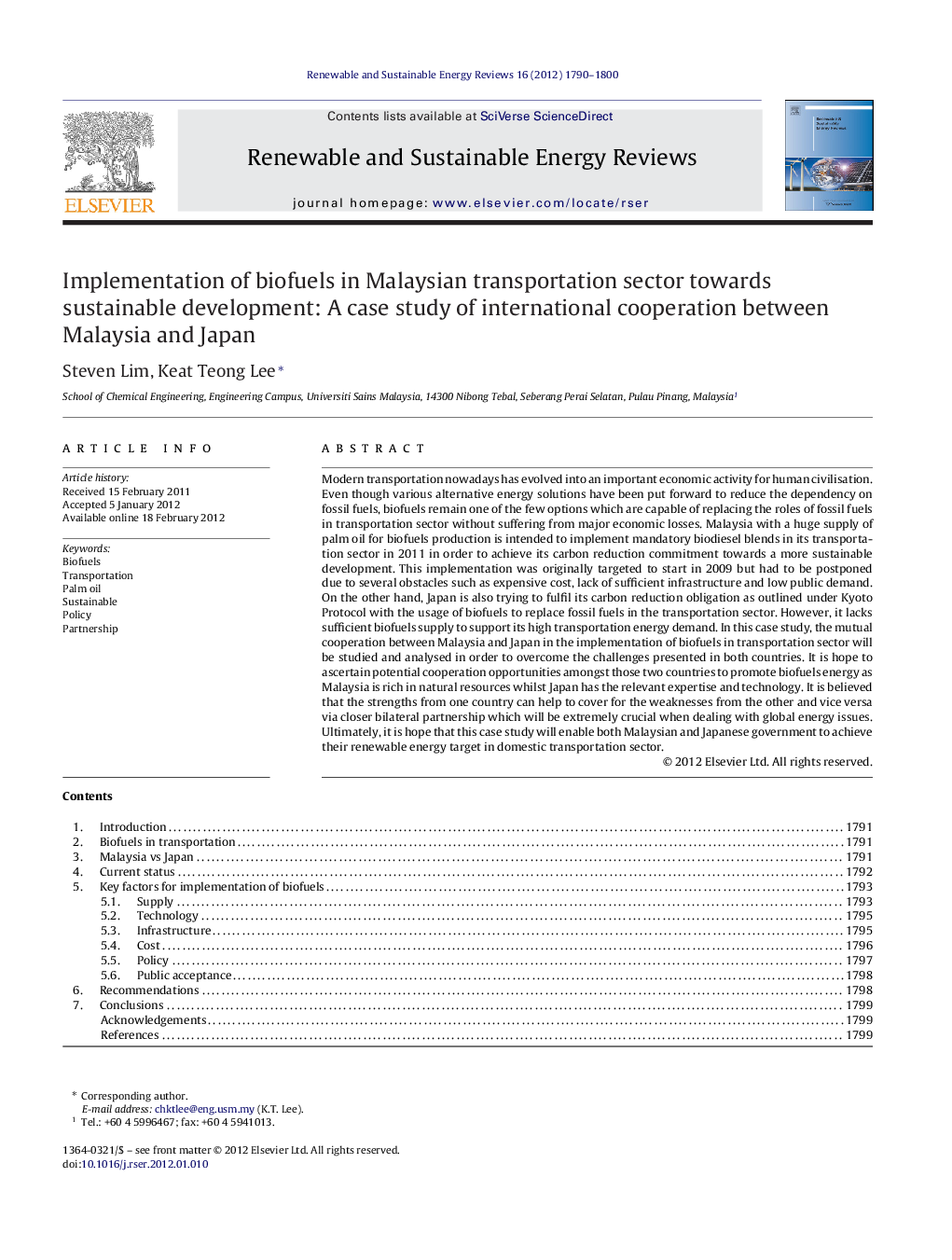| کد مقاله | کد نشریه | سال انتشار | مقاله انگلیسی | نسخه تمام متن |
|---|---|---|---|---|
| 1750442 | 1018395 | 2012 | 11 صفحه PDF | دانلود رایگان |

Modern transportation nowadays has evolved into an important economic activity for human civilisation. Even though various alternative energy solutions have been put forward to reduce the dependency on fossil fuels, biofuels remain one of the few options which are capable of replacing the roles of fossil fuels in transportation sector without suffering from major economic losses. Malaysia with a huge supply of palm oil for biofuels production is intended to implement mandatory biodiesel blends in its transportation sector in 2011 in order to achieve its carbon reduction commitment towards a more sustainable development. This implementation was originally targeted to start in 2009 but had to be postponed due to several obstacles such as expensive cost, lack of sufficient infrastructure and low public demand. On the other hand, Japan is also trying to fulfil its carbon reduction obligation as outlined under Kyoto Protocol with the usage of biofuels to replace fossil fuels in the transportation sector. However, it lacks sufficient biofuels supply to support its high transportation energy demand. In this case study, the mutual cooperation between Malaysia and Japan in the implementation of biofuels in transportation sector will be studied and analysed in order to overcome the challenges presented in both countries. It is hope to ascertain potential cooperation opportunities amongst those two countries to promote biofuels energy as Malaysia is rich in natural resources whilst Japan has the relevant expertise and technology. It is believed that the strengths from one country can help to cover for the weaknesses from the other and vice versa via closer bilateral partnership which will be extremely crucial when dealing with global energy issues. Ultimately, it is hope that this case study will enable both Malaysian and Japanese government to achieve their renewable energy target in domestic transportation sector.
Journal: Renewable and Sustainable Energy Reviews - Volume 16, Issue 4, May 2012, Pages 1790–1800